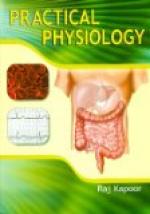While a hearty meal should not usually be taken just before bedtime, it is not well to go to bed with a sense of positive faintness and hunger. Rather, one should take a very light lunch of quite simple food as a support for the next eight hours.
[Illustration: Fig. 122.—Trunk of the Left Pneumogastric.
(Showing its distribution by its branches and ganglia to the larynx, pharynx, heart, lungs, and other parts.)]
It is better, as a rule, not to engage in severe study during the hours just before bedtime. Neither body nor mind being at its best after the fatigues of the day, study at that time wears upon the system more, and the progress is less than at earlier hours. One hour of morning or day study is worth a much longer time late at night. It is, therefore, an economy both of time and of nerve force to use the day hours and the early evening for study.
The so-called “cat naps” should never be made to serve as a substitute for a full night’s sleep. They are largely a matter of habit, and are detrimental to some as well as beneficial to others. Late hours are usually associated with exposure, excitement, and various other drains upon the nerve force, and hence are injurious.
It is better to sleep on one or other side than on the back. The head should be somewhat raised, and a mattress is better than a feather bed. The bedclothes should be sufficient, but not too heavy. Light tends to prevent sleep, as do loud or abrupt sounds, but monotonous sounds aid it.
291. Alcohol and the Brain. The unfortunate effects which alcoholic drinks produce upon the brain and nervous system differ from the destructive results upon other parts of the body in this respect, that elsewhere the consequences are usually both less speedy and less obvious. The stomach, the liver, and even the heart may endure for a while the trespass of the narcotic poison, and not betray the invasion. But the nervous system cannot, like them, suffer in silence.
In the other parts of the body the victim may (to a certain extent) conceal from others the suffering of which he himself is painfully conscious. But the tortured brain instantly reveals the calamity and the shame, while the only one who may not fully realize it is the victim himself. Besides this, the injuries inflicted upon other organs affect only the body, but here they drag down the mind, ruin the morals, and destroy the character.
The brain is indeed the most important organ of the body, as it presides over all the others. It is the lofty seat of power and authority. Here the king is on his throne. But if, by this malignant adversary, the king himself be dethroned, his whole empire falls to ruins.
292. How Alcohol Injures the Brain. The brain, the nerve centers, and the nerves are all made up of nerve pulp, the softest and most delicate tissue in the whole bodily structure. Wherever this fragile material occurs in our bodies,—in the skull, the spine, the trunk, or the limbs,—the all-wise Architect has carefully protected it from violence, for a rough touch would injure it, or even tender pressure would disturb its function.




